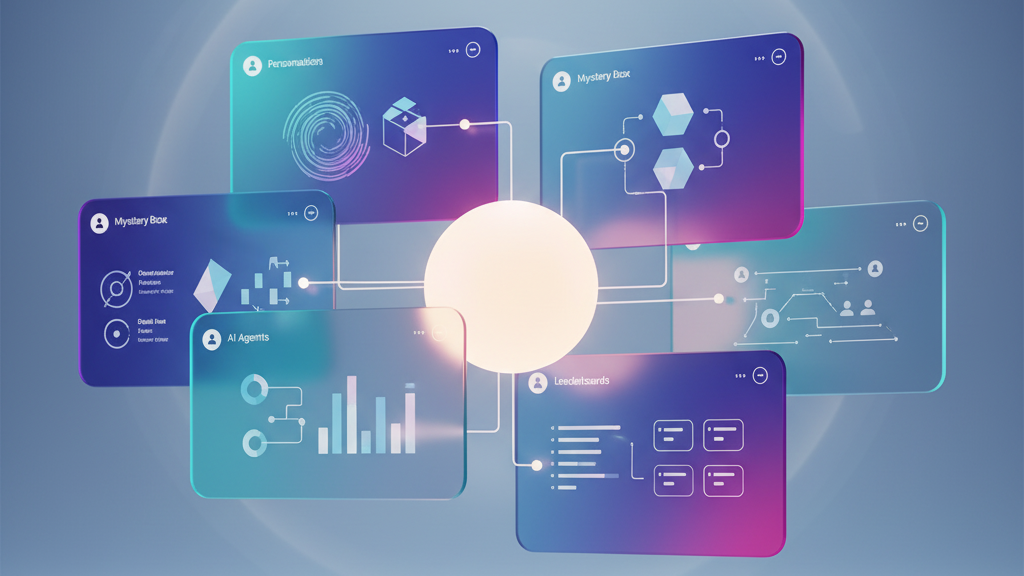Artificial intelligence is entering a new era — one that doesn’t just understand or generate, but acts.
Instead of simply analysing data or producing content, AI agents are beginning to autonomously plan, decide, and execute tasks across industries. This shift marks the start of an entirely new paradigm for how businesses interact with customers — one where the experience becomes predictive, personal, and frictionless.
From Generative to Agentic: The Next Step in AI Evolution
Generative AI was the spark that redefined creativity and productivity. But agentic AI represents the next leap forward — intelligent systems capable of reasoning, adapting, and executing complex workflows without human micromanagement.
Where traditional AI models relied on prompts, AI agents rely on objectives. They can:
- Collect and interpret customer data across channels.
- Predict intent and behaviour.
- Take autonomous actions, such as issuing a personalised offer or resolving an issue.
- Learn continuously from the outcomes of those actions.
This transformation is not theoretical anymore. The move from “AI assistance” to AI orchestration is already reshaping the foundations of customer experience.
A New Type of Commerce: The Rise of Agentic Transactions
Recent developments in the industry show what’s next: AI systems that can handle end-to-end commerce.
Consumers will soon move from browsing to buying through conversational experiences — all handled seamlessly by AI. These systems will integrate with payment networks, logistics, and brand databases to complete transactions in real time.
This is what we can call Agentic Commerce — a world where the chat interface is no longer a support channel, but a full-fledged sales and service layer.
Customers won’t just “ask” a chatbot for a product — they’ll buy directly through the conversation, powered by secure, real-time protocols and adaptive agents.
Industry Impacts: AI Agents Across Sectors
Retail and E-commerce
AI agents are redefining how customers shop. Instead of static recommendations, shoppers will have personal AI concierges that handle discovery, purchase, and post-purchase interactions. Retailers will benefit from richer data loops and higher conversion driven by context-aware decision-making.
Financial Services
In banking and insurance, AI agents will become personal risk and finance advisors, capable of analysing spending habits, market conditions, and regulatory changes to suggest precise next actions. This turns traditional customer service into a proactive, always-on advisory model.
Healthcare
Patient engagement will shift from appointment-based care to continuous, AI-monitored wellness. Agents can manage scheduling, reminders, and personalised health recommendations — reducing friction for both patients and providers.
Hospitality and Travel
Imagine an AI travel planner that books your flights, upgrades your hotel room, and rewards you for loyalty — automatically.
This is the new standard: hyper-personalised experiences that run on autonomous agents instead of human intermediaries.
Enterprise and SaaS
For B2B companies, AI agents will coordinate marketing, sales, and service across multiple systems — handling repetitive tasks, generating insights, and initiating actions across CRMs, ERPs, and analytics tools. The result is a connected, intelligent customer lifecycle.
The Martech Shift: Adapt or Become Irrelevant
The martech landscape must evolve quickly.
AI agents change the logic of customer interaction — from campaign-based to continuous learning loops. Marketers will need platforms that integrate data, automation, and reasoning capabilities into a single orchestration layer.
Traditional segmentation and rule-based automations are no longer enough.
The winners will be those who can deploy autonomous agents that learn in real time, adapt to consumer intent, and optimise budgets dynamically.
Platforms that fail to embed agentic intelligence risk becoming obsolete — unable to deliver the speed, precision, and adaptability that modern experiences demand.
How Companies Are Driving This Forward
At the forefront of this transformation are new platforms built natively for AI orchestration — systems that unify loyalty, retention, and intelligence under a single architecture.
Companies like Loiale are leading this movement by integrating AI agents directly into customer loyalty and retention systems.
These agents don’t just analyse customer data — they act on it.
They recover churn-risk customers, personalise incentives, optimise marketing spend, and continuously learn which experiences drive the highest lifetime value.
By embedding AI agents at the heart of customer infrastructure, enterprises can shift from managing loyalty programmes to orchestrating intelligent customer ecosystems.
The Road Ahead
AI agents mark the beginning of a new operational model for businesses — one where:
- Customer experiences are predictive, not reactive.
- Marketing evolves into real-time decisioning.
- Loyalty becomes self-optimising and adaptive.
- Data flows seamlessly across all touchpoints.
In this world, the brands that win won’t just adopt AI — they’ll trust it to act.
The era of AI agents isn’t about replacing human creativity; it’s about scaling it, amplifying it, and making every customer interaction count.
